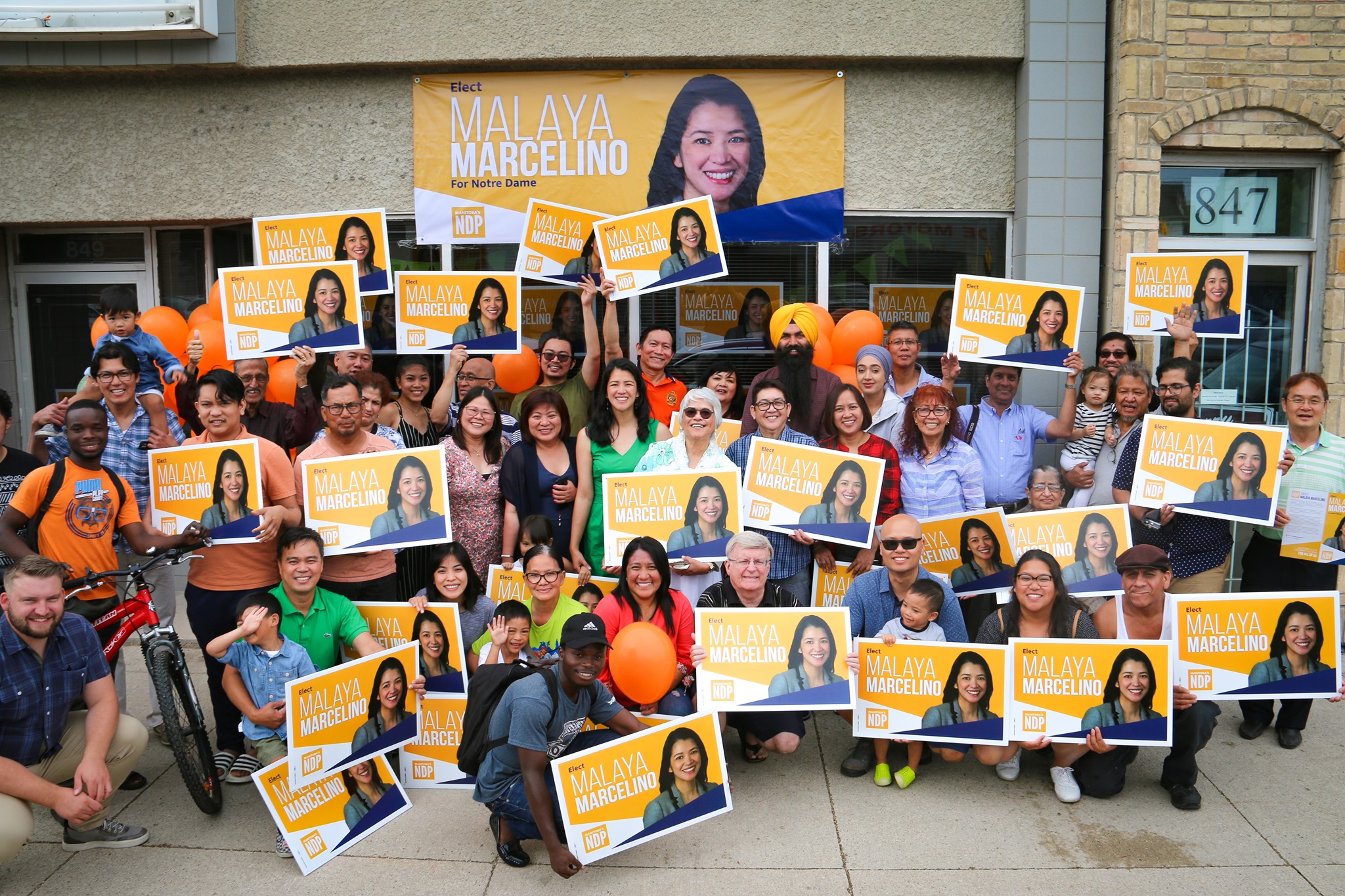Barely a month into serving as Manitoba’s Minister of Labour and Immigration, Philippine-born Malaya Marcelino has pledged to answer the “cry of Internationally Educated Nurses” (IEN) by removing barriers to accreditation.
“The job of a politician is to listen to the people I’m supposed to represent,” Marcelino told New Canadian Media. “I’m just responding to them and trying to find a way to make this happen. This is the cry of the IENs here in Manitoba and I believe across Canada.
“We’re working diligently to try to remove the unfair barriers to accreditation so these folks can practice and do so safely and have support in place.

According to Marcelino, there’s currently a shortage of 2,600 nurses in Manitoba, as well as a shortage of medical doctors.
“We have the lowest doctor-to-patient ratio,” she said.
The minister said she has been given a mandate by the people of Manitoba to fix health care, make life more affordable and have a balanced budget.
“They gave us very clear priorities on what they wanted us to work on,” Marcelino said. “It’s not easy to do those priorities. I’m putting my full energy into trying to make those things happen.”
A Pathway to Accreditation
There are many barriers to accreditation, not just for nurses but also for other internationally educated professionals. These new Canadians are not practising their profession because of past barriers, such as financial difficulty or failing a test.
“Obviously we need to prioritize safety and there has to be safety standards, but we have to identify stuff that doesn’t make sense,” Marcelino said.
For example, there are multiple language tests they have to re-write even though they have already passed them. The regulatory colleges require professionals who haven’t practised in two or three years to restart their education.
“Many of them are out of the scope of practice,” Marcelino said. “To go back to a four-year nursing degree, or start again as a doctor, it’s extremely prohibitive. No one can do that.”
She said that creating a new pathway for internationally educated professionals could help hundreds of professionals get to work in their careers.
“We know that internationally educated health professionals will have a role to play in helping us with this health human resource strategy,” said Marcelino.
“Once we have this successful pathway in place, I’m going to call on other IENs across Canada to come to Manitoba.”
Immigration tied to health care concerns
The minister said that as for her immigration file, health care is also the priority.
“I have to go by the mandate — again, it’s about health care. It has to do with foreign accreditation. There are 31 regulated colleges,” Marcelino said.
“I need to prioritize our internationally educated health professions. I’ve been doing this for 30 days now, I still have to work on this first.
“I have to use my labour and immigration file to respond to those concerns raised by Manitobans over this past year.”
Is Manitoba a better province for Filipinos?
Having lived in both Ontario and Manitoba, Marcelino has experienced life as a Filipino in both provinces.
“I found it’s easier for Filipinos in Manitoba than in Ontario,” she said. “First of all, the cost of living is much easier here and more affordable.”
She said she has seen more Filipinos own houses, or buy vehicles in cash, and be more economically successful in her province.
Marcelino attributes that success partially to the Manitoba Provincial Nominee Program, which allows Filipinos to come to Canada if they have relatives in Manitoba. There are also more Filipinos in Manitoba, which means their voices are heard more in the community.
“One in 10 Winnipeggers is a Filipino. (The number may) even be higher. You see Filipinos in leadership positions everywhere,” she said.
Manitoba has a unique program where local schools offer Tagalog-immersion classes, similar to French immersion classes elsewhere.
“Here in Manitoba, we have Filipino bilingual classes run by the educational system. All material is taught 50 per cent in Filipino and 50 per cent in English.”
“We have our own Filipino radio station, union leaders, a senator. We have a lot of networking ability because of how closely knit we are. We have such a strong cultural presence — that translates itself to a political presence.
“I’m really proud of the Filipino community in Manitoba.”
A Message to Filipinos
Marcelino said that it’s important to have a strong identity, and that there are so many things to be proud of, even if Filipinos come from a poor country where so many people struggle.
“You’re never going to be white…you might as well know who you are and love who you are,” she said. “That kind of pride can translate itself to try to instill a cultural identity, to make sure that that’s strong.
“Always look back at your community. Just because you made it, there are still other people starting out. We can continue to help one another out that way.
“We were raised to love our community. I hope that is still evident in the work that I do as a politician now.”
Yona Harvey is the founder of Mabuhay Canada, a Filipino hub covering lifestyle news, arts and culture, and services for newcomers. Her work has appeared in The Globe and Mail, the Toronto Star, Kingston Whig-Standard, several Metroland Media outlets and The Kingstonist. She holds a degree in Mass Communications from the University of the Philippines and a Certificate in Magazine Journalism from Toronto Metropolitan University.






